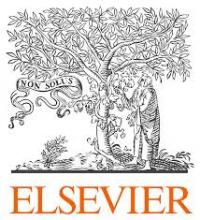Resource information
Adequate quantification of evapotranspiration (ET) is crucial to assess how climate change and land cover change (LCC) interact with the hydrological cycle of terrestrial ecosystems. The Mongolian Plateau plays a unique role in the global climate system due to its ecological vulnerability, high sensitivity to climate change and disturbances, and limited water resources. Here, we used a version of the Terrestrial Ecosystem Model that has been modified to use Penman–Monteith (PM) based algorithms to calculate ET. Comparison of site-level ET estimates from the modified model with ET measured at eddy covariance (EC) sites showed better agreement than ET estimates from the MODIS ET product, which overestimates ET during the winter months. The modified model was then used to simulate ET during the 21st century under six climate change scenarios by excluding/including climate-induced LCC. We found that regional annual ET varies from 188 to 286mmyr⁻¹ across all scenarios, and that it increases between 0.11mmyr⁻² and 0.55mmyr⁻² during the 21st century. A spatial gradient of ET that increases from the southwest to the northeast is consistent in all scenarios. Regional ET in grasslands, boreal forests and semi-desert/deserts ranges from 242 to 374mmyr⁻¹, 213 to 278mmyr⁻¹ and 100 to 199mmyr⁻¹, respectively; and the degree of the ET increase follows the order of grassland, semi-desert/desert, and boreal forest. Across the plateau, climate-induced LCC does not lead to a substantial change (



